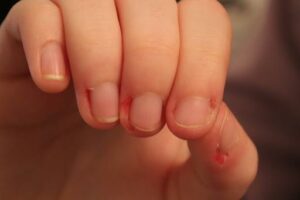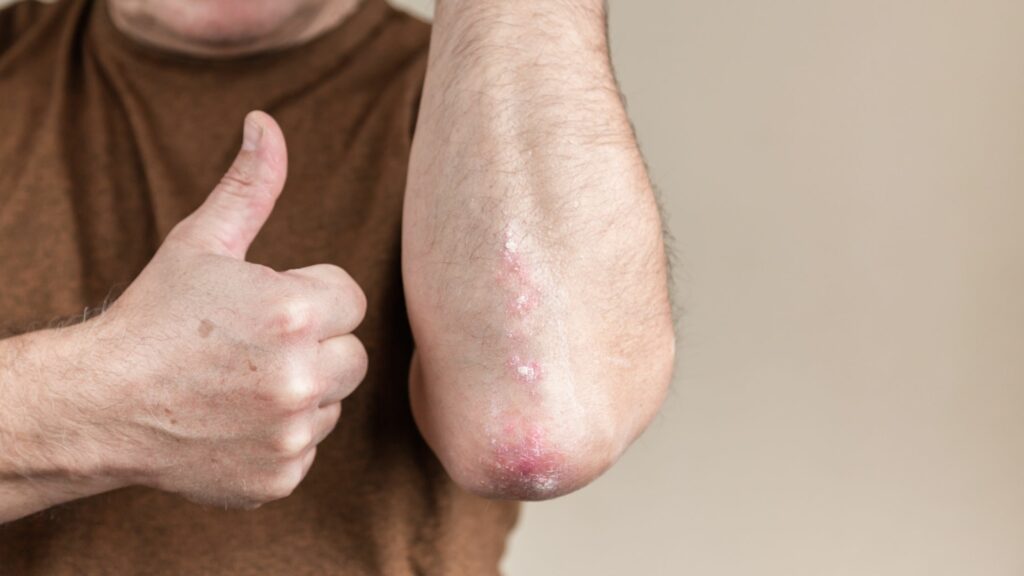Excoriation disorder (ED) is a mental disorder characterized by recurrent, intense, and unwanted episodes of skin excoriation or skin flap shedding. It is estimated that there are 1 million people in the world who suffer from ED, making it one of the most common mental disorders. In this article, we will explore what causes ED and how it can be diagnosed, as well as provide information on treatment options. We hope that by reading this article you will better understand this complex condition and be able to support your loved ones during this difficult time. You can also know if excoriation disorder is normal in people.
Contents
What is Excoriation Disorder?
 Excoriation disorder (ED) is a medical condition that affects the skin. It is characterized by recurrent, severe skin lesions that are caused by excessive scratching or rubbing of the skin. ED can be mild or severe and can last for months or even years. The lesions can be red, scaly, itchy, or blistering. ED can affect any part of the body but is most common on the face, neck, arms, and legs.
Excoriation disorder (ED) is a medical condition that affects the skin. It is characterized by recurrent, severe skin lesions that are caused by excessive scratching or rubbing of the skin. ED can be mild or severe and can last for months or even years. The lesions can be red, scaly, itchy, or blistering. ED can affect any part of the body but is most common on the face, neck, arms, and legs.
ED is not always easy to diagnose. It can be confused with other skin conditions, such as psoriasis or eczema. To determine whether someone has ED, a doctor may perform a skin exam and ask about the person’s history of skin picking. If ED is suspected, treatment may include topical creams or oral medications to stop the lesions from happening and reduce inflammation. ED can be a difficult condition to live with, but it is possible to manage it with appropriate treatment.
Is excoriation disorder normal?
Excoriation disorder, also known as skin picking disorder or dermatillomania, is a mental health condition that causes people to compulsively pick at their skin. While most of us have picked at a pimple or scab before, people with excoriation disorder can’t stop picking at their skin, even if it’s bleeding or raw. As a result, they often have permanent scars and damage to their skin.
The answer to the statement, if e.g. is excoriation disorder normal, is not as easy as a simple yes or no. It depends on different perspectives. Some people might say that any type of mental health condition isn’t “normal”, but others may argue that all human beings have some sort of mental health condition.
The important thing to remember is that if you have excoriation disorder, you’re not alone. Many people struggle with this condition, and there are treatments available that can help you manage your symptoms and live a happy, healthy life. If you think you might have excoriation disorder, talk to your doctor or a mental health professional for an evaluation. They can help you get the treatment you need to feel better.
What Causes Excoriation Disorder?

There are many causes of excoriation disorder. genetics, environment, and psychology all play a role in its development.
The most common theory is that it is caused by a combination of genetic and environmental factors. For example, if someone has a family member with the condition, they are more likely to develop it themselves. Additionally, certain environmental triggers can cause the disorder to develop. These triggers can include stress, anxiety, or boredom.
Psychology also plays a role in the development of excoriation disorder. People who have this condition often have low self-esteem and poor body image. They may also be perfectionists or have obsessive-compulsive tendencies. These psychological factors can lead to skin picking as a way to cope with negative emotions.
Another factor of skin picking is its link to other mental health conditions. People with excoriation disorder are more likely to have comorbid conditions, such as depression, anxiety, or substance abuse disorders. This suggests that there is a connection between mental health and skin picking.
How is Excoriation Disorder Diagnosed?
 Excoriation disorder is diagnosed when a person picks at their skin to the point of causing damage, and this causes them distress or problems in their daily life. To be diagnosed with excoriation disorder, a person must:
Excoriation disorder is diagnosed when a person picks at their skin to the point of causing damage, and this causes them distress or problems in their daily life. To be diagnosed with excoriation disorder, a person must:
-Have repeated episodes of picking at their skin.
-Cause skin damage from picking.
-Feel distressed or have problems in their daily life from picking.
This disorder is sometimes mistaken for other conditions, such as Obsessive Compulsive Disorder (OCD) or body dysmorphic disorder. It’s important to see a mental health professional for an accurate diagnosis.
In the diagnosis, also there are many subtypes of excoriation disorder which are:
-With comorbidities: when a person has another mental disorder along with this disorder.
-Without comorbidities: when a person only has excoriation disorder.
-Mild: when a person’s picking does not cause much skin damage or problems in their daily life.
-Moderate: when a person’s picking causes some skin damage and some problems in their daily life.
-Severe: when a person’s picking causes severe skin damage and significant problems in their daily life.
If you think you may have excoriation disorder, it’s important to seek help from a mental health professional. Treatment can help reduce or stop the urge to pick and improve your quality of life.
How is Excoriation Disorder Treated?

There is no one-size-fits-all treatment for this disorder. However, there are many effective treatments available. Treatment typically involves a combination of medication and therapy.
Medication can be used to help manage the symptoms of this disorder. Antidepressants, antipsychotics, and anti-anxiety medications are often prescribed. These medications can help to reduce the urge to pick and improve mood.
Therapy is another important part of treatment for excoriation disorder. Cognitive behavioral therapy (CBT) is often used to treat the condition. CBT can help people to change their thinking patterns and behaviors that contribute to skin picking. It can also help to improve self-esteem and body image.
Some other treatment methods are available, but they are not as well-studied. These methods include hypnosis and acupuncture. Some of these methods may be helpful for some people, but more research is needed to determine their effectiveness.
Excoriation disorder is a condition that needs to be taken seriously. If you or someone you know has this condition, it’s important to seek treatment. With the right treatment, many people with this disorder can live normal, healthy lives.
Conclusion
Is excoriation disorder normal? According to sources, this is a condition in which persistent skin lesions develop that are red, bumpy, and often itchy. In some cases, these lesions may blister or crust. The cause of this disorder is unknown but it may be related to certain medical conditions or disorders such as psoriasis or eczema. If you experience any of the following signs and symptoms, see your doctor: intense itching; blisters that do not heal; scaling that occurs with friction; moderate redness that lasts for more than 72 hours after the eruption has stopped; multiple lesions on one area of skin.
Hope this article was of help to you! If you are suffering from this disorder, you may seek help from Therapy Mantra. We have a team of highly trained and experienced therapists who can provide you with the tools and skills necessary for overcoming excoriation disorder. Contact us today to schedule an online therapy or download our free OCD treatment app on Android or iOS for more information.


